High-Level Dialogue on Enhancing Macroeconomic Resilience to Natural Disasters, June 25, 2015 |
Thursday, June 25, 2015 |
| 9:00 |
Opening Prayer |
| 9:10 |
Welcoming Remarks
- Hon. Aiyaz Sayed-Khaiyum, Minister of Finance of Fiji
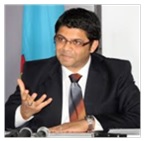 Hon. Aiyaz Sayed-Khaiyum, Attorney General and Minister of Finance, Public Enterprises, Public Service and Communications. Hon. Aiyaz Sayed-Khaiyum, Attorney General and Minister of Finance, Public Enterprises, Public Service and Communications.
Mr. Sayed-Khaiyum was appointed as Cabinet Minister September 2014. He was the Fijian Attorney-General and the Minister for Justice, Anti-Corruption, Public Enterprises, Communications, Civil Aviation, Tourism, Industry and Trade and the Minister responsible for Elections under the Bainimarama Government. Mr Sayed-Khaiyum joined the Bainimarama Government in 2007.
|
| 9:30 |
Session 1:How to build macro-fiscal resilience in the wake of natural disasters
This session will discuss policies to enhance macroeconomic resilience to natural disasters, including lessons from recent events. Are regional approaches effective?
Panel moderator:
- Hon. Inia Seruiratu, Minister for Rural and Maritime Development and National Disaster Management, Fiji
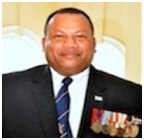 Hon. Inia Seruiratu, Minister for Agriculture, Rural and Maritime Development and National Disaster Management. Hon. Inia Seruiratu, Minister for Agriculture, Rural and Maritime Development and National Disaster Management.
The Honourable Seruiratu has also served as Commissioner Northern and Permanent Secretary for Rural Development.
Panel Members:
- Hon. Patrick Pruaitch, Minister for Treasury, Papua New Guinea
 Hon. Patrick Pruaitch, Minister of Treasury Hon. Patrick Pruaitch, Minister of Treasury
The Hon. Patrick Pruaitch was appointed as Minister for Treasury in March 2014. In the dozen years preceding this, he held a number of ministerial posts, including Minister of Forestry and Climate Change (2012-14) and the Treasurer (2007-10). He started his career in business after graduating from the University of PNG with a bachelor’s degree in economics.
- Hon. Willie Jimmy, Minister of Finance, Vanuatu
 Hon. Willie Jimmy, Minister of Finance and Economic Management Hon. Willie Jimmy, Minister of Finance and Economic Management
The Hon. Willie Jimmy is a Vanuatu politician with the Vanuatu Liberal Democratic Party. He was born March 4, 1960. Mr. Jimmy has been in Parliament since 1983. He served a Minister of Finance on several occasions and he also held other ministerial positions. He was Vanuatu’s first Ambassador to China in 2009-13.
- Hon. Maatia Toafa, Minister of Finance, Tuvalu
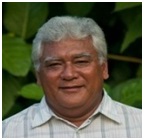 Hon. Maatia Toafa, Minister of Finance and Economic Development Hon. Maatia Toafa, Minister of Finance and Economic Development
The Hon. Maatia Toafa was appointed Minister of Finance and Economic Development in August 2013. He served as Prime Minister of Tuvalu in 2004 to 2006, and in 2010. Prior to entering domestic Tuvaluan politics, Mr. Toafa worked for the Pacific Islands Forum Secretariat in Suva, Fiji.
- Pierre Laporte, Special Envoy to the President, Seychelles
 His Excellency Pierre Laporte, Special Envoy to the President His Excellency Pierre Laporte, Special Envoy to the President
Pierre Laporte served as Minister of Finance, Trade, and Investment in Seychelles from May 2012–January 2015, before which he served as Governor of the Central Bank of Seychelles (2008-12). He is a former staff member of the International Monetary Fund (2002–08), and has served as the IMF Resident Representative to Niger.
- Barry Sterland, IMF Executive Director
 Barry Sterland is IMF Executive Director representing Australia, Kiribati, Korea, Marshall Islands, Micronesia, Mongolia, New Zealand, Palau, Papua New Guinea, Samoa, Seychelles, Solomon Islands Tuvalu, Uzbekistan, and Vanuatu. He was nominated by the Australian Government to become an Executive Director at the IMF in late 2014. Prior to this role, he was an Executive Director at the Australian Treasury, where he led the Australian Treasury’s international economic policy development and engagement. Barry Sterland is IMF Executive Director representing Australia, Kiribati, Korea, Marshall Islands, Micronesia, Mongolia, New Zealand, Palau, Papua New Guinea, Samoa, Seychelles, Solomon Islands Tuvalu, Uzbekistan, and Vanuatu. He was nominated by the Australian Government to become an Executive Director at the IMF in late 2014. Prior to this role, he was an Executive Director at the Australian Treasury, where he led the Australian Treasury’s international economic policy development and engagement.
- Changyong Rhee, IMF Director,APD
 Changyong Rhee assumed his current position as Director of the Asia and Pacific Department of the International Monetary Fund (IMF) in February 2014. Changyong Rhee assumed his current position as Director of the Asia and Pacific Department of the International Monetary Fund (IMF) in February 2014.
Prior to coming to the Fund Dr. Rhee was chief economist at the Asian Development Bank (ADB). He was the chief spokesperson for ADB on economic and development trends, and oversaw the Economics and Research Department.
Dr. Rhee was the secretary-general of the G20 summit’s Presidential Committee in the Republic of Korea.
Prior to his appointment at the FSC, Dr. Rhee was a Professor of Economics at Seoul National University and Assistant Professor at University of Rochester. He was also a frequent and active policy advisor to the Government of Korea, including in the Office of the President, the Ministry of Finance and Economy, the Bank of Korea, the Korea Securities Depository, and the Korea Development Institute.
His key research interests include macroeconomics, financial economics, and the Korean economy. He has published many papers in these fields. Dr. Rhee obtained his Ph.D. in Economics from Harvard University, and his Bachelor degree in Economics from Seoul National University.
|
| 11:00 |
Photo op and morning tea |
| 11:15 |
Session 2: Aligning monetary policy to enhance resilience to shocks and support growth
This session will discuss policy mix, particularly how monetary policy can help mitigate natural disaster risks and support growth together with fiscal policy. It will also discuss the importance of strengthening supervision as non-performance loans (NPLs) generally increase after the disasters.
Panel moderator:
- Governor Barry Whiteside, Reserve Bank of Fiji
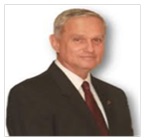 Mr. Whiteside has been Governor of the Reserve Bank of Fiji since 2011 and also serves as the Reserve Bank’s Chairman of the Board. He was acting Deputy Governor at the Reserve Bank from 2009 to 2011 and Chief Manager of Financial Institutions. Mr. Whiteside has been Governor of the Reserve Bank of Fiji since 2011 and also serves as the Reserve Bank’s Chairman of the Board. He was acting Deputy Governor at the Reserve Bank from 2009 to 2011 and Chief Manager of Financial Institutions.
Panel Members:
- Governor Denton Rarawa, Solomon Islands
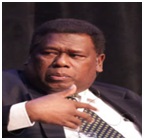 Mr. Rarawa has been Governor of the Central Bank of Solomon Islands (CBSI) since 2008. Mr. Rarawa has had a long career with the CBSI. He joined as a Research Officer in the Economics Department in 1983 and was appointed Assistant Manager of the Economic Department in 1988. In 1992 he became Manager of the Economics Department. Beginning 1998, he served as Deputy Governor for a period of 10 years. Mr. Rarawa has been Governor of the Central Bank of Solomon Islands (CBSI) since 2008. Mr. Rarawa has had a long career with the CBSI. He joined as a Research Officer in the Economics Department in 1983 and was appointed Assistant Manager of the Economic Department in 1988. In 1992 he became Manager of the Economics Department. Beginning 1998, he served as Deputy Governor for a period of 10 years.
- Governor Simeon Athy, Vanuatu
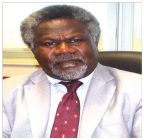 Mr. Athy was appointed as Governor of the Reserve Bank of Vanuatu (RBV) on October 11, 2013 for a period of five years. He holds a Bachelor's degree in Economics from the University of Papua New Guinea (1991). He held various positions with the RBV from 1991 to 2003 including the position of Director of the Research and Statistics Department of the RBV. He joined the Government of Vanuatu public service as Director General to the Ministry of Finance and Economic Management. He was transferred on the same position to the Prime Minister’s Office in mid-2008 and held that position until his appointment to the position of Governor of the RBV. Mr. Athy was appointed as Governor of the Reserve Bank of Vanuatu (RBV) on October 11, 2013 for a period of five years. He holds a Bachelor's degree in Economics from the University of Papua New Guinea (1991). He held various positions with the RBV from 1991 to 2003 including the position of Director of the Research and Statistics Department of the RBV. He joined the Government of Vanuatu public service as Director General to the Ministry of Finance and Economic Management. He was transferred on the same position to the Prime Minister’s Office in mid-2008 and held that position until his appointment to the position of Governor of the RBV.
- Governor Loi Bakani, Papua New Guinea
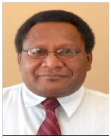 Mr. Loi Bakani has been the Governor of the Bank of Papua New Guinea since 2008. He was appointed the Head of Economics Department in 1998 and became the Deputy Governor in 2005. Mr. Loi Bakani has been the Governor of the Bank of Papua New Guinea since 2008. He was appointed the Head of Economics Department in 1998 and became the Deputy Governor in 2005.
Mr. Bakani holds an Honors Masters Degree in Economics from the University of Wollongong (1994) Australia, and a Bachelor of Economics Degree from the University of PNG (1984).
- Assistant Governor Benjamin Pereira, Samoa
 Mr. Pereira has been Assistant Governor at the Central Bank of Samoa since 2013. Prior to that, Mr. Pereira was an independent Senior Advisor in Economics and Finance for the private sector (2011-13), an Advisor to Executive Director for Asia and Pacific Constituency at the IMF (2009-11), and Assistant Chief Executive Officer at the Ministry of Finance of Samoa (2007-09). He holds a M.Sc. in Project Planning, Appraisal and Financing from the University of Bradford in England. Mr. Pereira has been Assistant Governor at the Central Bank of Samoa since 2013. Prior to that, Mr. Pereira was an independent Senior Advisor in Economics and Finance for the private sector (2011-13), an Advisor to Executive Director for Asia and Pacific Constituency at the IMF (2009-11), and Assistant Chief Executive Officer at the Ministry of Finance of Samoa (2007-09). He holds a M.Sc. in Project Planning, Appraisal and Financing from the University of Bradford in England.
|
| 12:30 |
Lunch |
| 2:00 |
Session 3:The growth challenge and vulnerability to debt distress
This session will discuss policies to support growth and minimize the risk of debt distress arising from natural disasters (as debt levels would likely increase in order to finance the recovery and reconstruction efforts).
Panel Moderator:
- HK Yu, Acting Deputy Secretary, Treasury, Australia
 HK Yu is the Acting Deputy Secretary (International) of the Macroeconomic Group. In this role she leads Treasury’s international economic policy development and engagement. HK has extensive experience in representing Australia in various international fora. HK was General Manager, G20 Policy Division from January 2013 to November 2014. As General Manager she supported the Treasurer to shape, manage and lead the policy agenda and engagement in relation to Australia’s hosting of G20 Finance Ministers’ and Central Bank Governors’ meetings. HK Yu is the Acting Deputy Secretary (International) of the Macroeconomic Group. In this role she leads Treasury’s international economic policy development and engagement. HK has extensive experience in representing Australia in various international fora. HK was General Manager, G20 Policy Division from January 2013 to November 2014. As General Manager she supported the Treasurer to shape, manage and lead the policy agenda and engagement in relation to Australia’s hosting of G20 Finance Ministers’ and Central Bank Governors’ meetings.
Panel members:
- Hon. Tom Murdoch, Minister of Finance, Kiribati
 Hon. Tom Murdoch has been Minister of Finance and Economic Development and a member of the Parliament (representing Kuria islands) since 2011. Prior to this assignment Mr. Murdoch held several positions in the government, including Deputy Secretary in the Ministry of Environment Lands and Agricultural Development, Deputy Secretary in the Ministry of Internal and Social Affairs and Deputy Secretary in the Ministry of Foreign Affairs. He holds a diploma in Telecommunication Engineering from Fiji Institute of Technology and MBA from the University of the South Pacific. Hon. Tom Murdoch has been Minister of Finance and Economic Development and a member of the Parliament (representing Kuria islands) since 2011. Prior to this assignment Mr. Murdoch held several positions in the government, including Deputy Secretary in the Ministry of Environment Lands and Agricultural Development, Deputy Secretary in the Ministry of Internal and Social Affairs and Deputy Secretary in the Ministry of Foreign Affairs. He holds a diploma in Telecommunication Engineering from Fiji Institute of Technology and MBA from the University of the South Pacific.
- Hon. David Adeang, Minister of Finance, Nauru
 Hon. David Waiau Adeang, Minister of Finance and Sustainable Development. Hon. David Waiau Adeang, Minister of Finance and Sustainable Development.
Hon. Minister David Waiau Adeang currently holds five portfolios: Minister for Finance and Sustainable Development; Minister for Justice; Minister for Eigigu Holdings Corporation; Minister for Nauru Air Corporation; and the Minister Assisting the President. He was appointed to the Cabinet on June 13, 2013 together with other four Members of Parliament. He received his Master of Economics from the Australian National University and also went to Harvard University for a postgraduate program.
- Hon. Mark Brown, Minister of Finance, Cook Islands
 Hon. Mark Brown, Minister of Financial and Economic Management. Hon. Mark Brown, Minister of Financial and Economic Management.
Minister Mark Brown holds responsibility for key portfolios in the Cook Islands Government including: Ministry of Financial and Economic Management, Financial Services Development Authority, Financial Supervisory Commission, Financial Intelligence Unit, Business Trade and Investment Board, Cook Islands Investment Corporation, Ministry of Internal Affairs, Commerce Commission, National Superannuation, Telecommunications, and Public Expenditure Review Committee and Audit. Minister Brown holds a Masters in Business Administration from the University of the South Pacific and a Diploma in Public Sector Management from Massey University in New Zealand.
- Kilisitina Tuaimei’api, Deputy CEO for Finance, Tonga
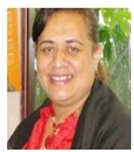 Ms. Kilisitina Tuaimei'api, Deputy CEO for Budget and Corporate Planning Division. Ms. Kilisitina Tuaimei'api, Deputy CEO for Budget and Corporate Planning Division.
Ms. Tuaimei’api became a Public Servant for the Ministry of Finance as an Economist in 1998. She was then promoted to Senior Economist in 2002. She was promoted again in 2003 and became a Principal Economist at the same ministry. Tina had the opportunity of being the Director's Advisor for the Board of Directors at the Asian Development Bank as an attachment for 3 years in 2008. Since 2013 she became the Deputy Secretary for Budget and Corporate Plan Division.
- Patrizia Tumbarello, IMF, Unit Chief, Small States Unit
 Patrizia Tumbarello is the Unit Chief of the Small States Unit in the Asia and Pacific Department of the International Monetary Fund. She is the mission chief for the Solomon Islands. Her previous assignments included Australia, emerging markets (Vietnam, Algeria and Morocco) and low-income countries (Albania, Moldova), including few Pacific Islands (Kiribati, Papua New Guinea, and Samoa), program and surveillance cases. Patrizia Tumbarello is the Unit Chief of the Small States Unit in the Asia and Pacific Department of the International Monetary Fund. She is the mission chief for the Solomon Islands. Her previous assignments included Australia, emerging markets (Vietnam, Algeria and Morocco) and low-income countries (Albania, Moldova), including few Pacific Islands (Kiribati, Papua New Guinea, and Samoa), program and surveillance cases.
- Robert Utz, Lead Economist and Program Leader, World Bank Group
 Robert Utz, Lead Economist and Program Leader for Macroeconomics and Fiscal Management, East Asia and Pacific. Robert Utz, Lead Economist and Program Leader for Macroeconomics and Fiscal Management, East Asia and Pacific.
Robert Utz has more than 17 years’ experience at the World Bank. He is responsible for coordinating the World Bank’s work on macro-economic and fiscal management, governance, poverty, trade and competitiveness, and markets and finance in the Pacific. He is leading the preparation of the Pacific Possible study which examines long term economic opportunities of Pacific Island Countries as well as the development of a Systematic Country Diagnostic that seeks to identify opportunities and constraints for reducing poverty and boosting shared prosperity.
|
| 3:30 |
Coffee break |
| 4:00 |
Session 4: Enhancing risk management and the role of development partners
This session will discuss policies to strengthen ex ante and ex post resilience to natural disasters. It will also discuss how to leverage support from development partners.
Panel Moderator:
- Changyong Rhee, IMF Director, APD
 Changyong Rhee assumed his current position as Director of the Asia and Pacific Department of the International Monetary Fund (IMF) in February 2014. Changyong Rhee assumed his current position as Director of the Asia and Pacific Department of the International Monetary Fund (IMF) in February 2014.
Prior to coming to the Fund Dr. Rhee was chief economist at the Asian Development Bank (ADB). He was the chief spokesperson for ADB on economic and development trends, and oversaw the Economics and Research Department.
Dr. Rhee was the secretary-general of the G20 summit’s Presidential Committee in the Republic of Korea.
Prior to his appointment at the FSC, Dr. Rhee was a Professor of Economics at Seoul National University and Assistant Professor at University of Rochester. He was also a frequent and active policy advisor to the Government of Korea, including in the Office of the President, the Ministry of Finance and Economy, the Bank of Korea, the Korea Securities Depository, and the Korea Development Institute.
His key research interests include macroeconomics, financial economics, and the Korean economy. He has published many papers in these fields. Dr. Rhee obtained his Ph.D. in Economics from Harvard University, and his Bachelor degree in Economics from Seoul National University.
Panel members:
- Hon. Kensley Ikosia, Minister of Finance, Micronesia
 Hon. Kensley Ikosia was appointed in May 2012 as Secretary of Finance and Administration. Prior this appointment, he served as Director of the Office of Planning and Budget at the Yap State Government. He also served as the Deputy Director of the FSM Joint Compact Negotiation, negotiating with the US on its assistance package for the FSM. Hon. Kensley Ikosia was appointed in May 2012 as Secretary of Finance and Administration. Prior this appointment, he served as Director of the Office of Planning and Budget at the Yap State Government. He also served as the Deputy Director of the FSM Joint Compact Negotiation, negotiating with the US on its assistance package for the FSM.
- Helder Lopes, Vice Minister of Finance, Timor-Leste
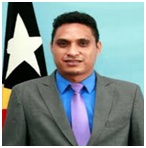 Helder Lopes was appointed as Vice Minister in February 2015. Prior to that, Vice Minister Lopes served as the Resident Economic Advisor and Chief Economist in the Economic Policy Directorate in the Ministry of Finance from 2011–15. His previous roles at the Ministry of Finance included the Coordinator for the Economic Policies National Directorate, and the Head of the Macroeconomic Unit. He graduated in 2010 with a Master's degree in Agriculture Economics from Michigan State University, USA. Helder Lopes was appointed as Vice Minister in February 2015. Prior to that, Vice Minister Lopes served as the Resident Economic Advisor and Chief Economist in the Economic Policy Directorate in the Ministry of Finance from 2011–15. His previous roles at the Ministry of Finance included the Coordinator for the Economic Policies National Directorate, and the Head of the Macroeconomic Unit. He graduated in 2010 with a Master's degree in Agriculture Economics from Michigan State University, USA.
- Renato Mele, Head of Co-operation, EU
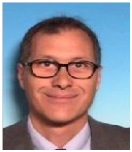 Renato Mele is the head of cooperation of the EU Delegation for the Pacific in Suva, Fiji. The delegation is in charge of the bilateral external cooperation programs with eleven Pacific ACP countries (Cook Islands, Kingdom of Tonga, Kiribati, the Federated States of Micronesia, Fiji, Nauru, Niue, Palau, Samoa, the Republic of the Marshall Islands and Tuvalu) and four Overseas Countries and Territories (French Polynesia, New Caledonia, Pitcairn and Wallis and Futuna) and of the regional cooperation program (which also includes four other Pacific ACP countries). Mr. Mele has a degree in nuclear engineering and a PhD in materials engineering. Renato Mele is the head of cooperation of the EU Delegation for the Pacific in Suva, Fiji. The delegation is in charge of the bilateral external cooperation programs with eleven Pacific ACP countries (Cook Islands, Kingdom of Tonga, Kiribati, the Federated States of Micronesia, Fiji, Nauru, Niue, Palau, Samoa, the Republic of the Marshall Islands and Tuvalu) and four Overseas Countries and Territories (French Polynesia, New Caledonia, Pitcairn and Wallis and Futuna) and of the regional cooperation program (which also includes four other Pacific ACP countries). Mr. Mele has a degree in nuclear engineering and a PhD in materials engineering.
- Emma Veve, Director, ADB
 Emma Veve is Director, Urban, Social Development, and Public Management Division as well as country director responsible for Federated States of Micronesia, Palau, and Republic of Marshall Islands, in ADB’s Pacific Department. She took up this position in July 2014 moving from the role of the Pacific Department’s Principal Economist. She was previously with ADB’s Pacific Subregional Office in Suva, Fiji. She joined ADB in 2005 following a period as Economic Adviser with the Pacific Islands Forum Secretariat in Suva, Fiji. Prior to this she held various positions in the Australian commonwealth public service, predominantly in economic research. She completed a double degree in agricultural science and economics from the University of Queensland, Brisbane, Australia and holds a master’s degree in economics from the University of New England, Armidale, Australia. Emma Veve is Director, Urban, Social Development, and Public Management Division as well as country director responsible for Federated States of Micronesia, Palau, and Republic of Marshall Islands, in ADB’s Pacific Department. She took up this position in July 2014 moving from the role of the Pacific Department’s Principal Economist. She was previously with ADB’s Pacific Subregional Office in Suva, Fiji. She joined ADB in 2005 following a period as Economic Adviser with the Pacific Islands Forum Secretariat in Suva, Fiji. Prior to this she held various positions in the Australian commonwealth public service, predominantly in economic research. She completed a double degree in agricultural science and economics from the University of Queensland, Brisbane, Australia and holds a master’s degree in economics from the University of New England, Armidale, Australia.
- Vinayak Nagaraj, Principal Development Economist, New Zealand Aid Programme
 Mr. Vinayak (Vinny) Nagaraj is the Principal Development Economist to the New Zealand Ministry of Foreign Affairs and Trade. In his current role, Mr. Nagaraj is the New Zealand Government’s chief adviser on economic policy, structural reform, public financial management and financial markets in developing countries. Mr. Nagaraj supervises the delivery of New Zealand’s economic governance activities in the Pacific, including economic and PFM reform programs in the Cook Islands, Kiribati, Niue, Samoa, Solomon Islands, Tokelau and Tuvalu. He serves as New Zealand’s representative in the Steering Committee of the Pacific Financial Technical Assistance Centre (PFTAC), and in 2014 co-led the Joint Review of the Solomon Islands Core Economic Working Group. Mr. Nagaraj holds a Master’s degree in Economics from the London School of Economics, where he also spent two years as an economics research student. Mr. Vinayak (Vinny) Nagaraj is the Principal Development Economist to the New Zealand Ministry of Foreign Affairs and Trade. In his current role, Mr. Nagaraj is the New Zealand Government’s chief adviser on economic policy, structural reform, public financial management and financial markets in developing countries. Mr. Nagaraj supervises the delivery of New Zealand’s economic governance activities in the Pacific, including economic and PFM reform programs in the Cook Islands, Kiribati, Niue, Samoa, Solomon Islands, Tokelau and Tuvalu. He serves as New Zealand’s representative in the Steering Committee of the Pacific Financial Technical Assistance Centre (PFTAC), and in 2014 co-led the Joint Review of the Solomon Islands Core Economic Working Group. Mr. Nagaraj holds a Master’s degree in Economics from the London School of Economics, where he also spent two years as an economics research student.
- Megumi Muto, Deputy Director General, JICA
 As Deputy Director General of the Southeast Asia and Pacific Department of JICA, Dr. Muto develops and manages the portfolio covering the Philippines and the Pacific. Her area of expertise ranges from infrastructure financing, impact evaluation to disaster risk finance. Through her career in the Overseas Economic Cooperation Fund (OECF), Japan Bank for International Cooperation (JBIC) and JICA, many innovations from her portfolio became institution wide practices. After her BA Economics from Keio University, she completed Master of Public and International Affairs at Princeton University, and PhD Development Economics. As Deputy Director General of the Southeast Asia and Pacific Department of JICA, Dr. Muto develops and manages the portfolio covering the Philippines and the Pacific. Her area of expertise ranges from infrastructure financing, impact evaluation to disaster risk finance. Through her career in the Overseas Economic Cooperation Fund (OECF), Japan Bank for International Cooperation (JBIC) and JICA, many innovations from her portfolio became institution wide practices. After her BA Economics from Keio University, she completed Master of Public and International Affairs at Princeton University, and PhD Development Economics.
|
| 5:30 |
Closing session |
6:15 |
Joint Press conference: IMF and Government of Fiji |
7:00 |
Official dinner for delegates
Hosted by the Government of Fiji |
Workshop on Strengthening Fiscal Frameworks in the Pacific Islands, June 22-24, 2015 |
Monday, June 22, 2015 |
| 8:30 |
Registration |
| 9:00 |
Morning Prayer |
| 9:15 |
Introduction to the workshop: objectives and goals
Scott Roger (PFTAC coordinator) Patrizia Tumbarello (Chief, Small States Unit, APD) |
| 9:30 |
Opening remarksFilimone Waqabaca, Fiji Permanent Secretary of Finance |
| 9:45 |
Fiscal policy and macroeconomic performance
(Macroeconomic overview of the key role of fiscal policy in PICs)
Patrizia Tumbarello (APD) |
| 10:15 |
Morning tea and coffee |
| 10:45 |
Macro-fiscal linkages and fiscal indicators
Lorenzo Forni (FAD) |
| 11:15 |
Case study on macro-fiscal linkages
Workshop participants |
12:00 |
Discussion of case study
Workshop participants
Moderator: Lorenzo Forni (FAD) |
| 12:30 |
Lunch |
| 2:00 |
Methods of revenue forecasting
Evan Tanner (ICD) |
| 2:45 |
Case study on forecasting revenues (breakout session)
Workshop participants |
| 3:30 |
Coffee and tea break |
| 4:00 |
Case study on forecasting revenues (breakout session) Cont’d
Workshop participants |
| 4:30 |
Discussion of case study results on revenue forecasting
Workshop participants
Moderator: Evan Tanner (ICD) |
| 5:30 |
End of Day One |
| 7:00 |
Dinner between officials and APD mission chiefs at the Lagoon Restaurant, Hotel Sofitel
Hosted by the IMF |
Tuesday, June 23, 2015 |
| 9:00 |
Methods of expenditure forecasting
Eliko Pedastsaar (FAD) |
| 9:45 |
Case study on expenditure forecasting (breakout session)
Workshop participants |
| 10:30 |
Morning tea and coffee |
| 11:00 |
Discussion of case study on expenditure forecasting
Workshop participants
Moderator: Eliko Pedastsaar (FAD) |
| 12:30 |
Lunch |
| 2:00 |
Methods of debt dynamics assessment (budget financing and debt sustainability)
Lorenzo Forni (FAD) |
| 2:45 |
Case study on assessing debt dynamics (breakout session)
Workshop participants |
| 3:30 |
Coffee and tea break |
| 4:00 |
Case study on assessing debt dynamics (Cont’d)
Workshop participants |
| 4:30 |
Discussion of case study results
Workshop participants
Moderator: Evan Tanner (ICD) |
| 5:30 |
End of Day Two |
| 7:00 |
Dinner between officials and APD mission chiefs at the Lagoon Restaurant, Hotel Sofitel
Hosted by the IMF |
Wednesday, June 24, 2015 |
| 9:00 |
The role of fiscal rules, fiscal anchors, and fiscal targets
Patrizia Tumbarello (APD) |
| 9:20 |
Cyclone Pam: Impact on Vanuatu’s Debt Sustainability
Vladimir Klyuev (APD) |
| 9:45 |
Natural disaster risks, fiscal policy and budgeting (including prospective fiscal costs of natural disasters)
Doug Hostland (PFTAC) |
| 10:30 |
Morning tea and coffee |
| 11:00 |
Case study on recognizing and preparing for prospective fiscal costs of natural disasters (breakout session)
Workshop participants |
| 12:30 |
Lunch |
| 2:00 |
Quality of public spending, monitoring, and accountability
Ron Hackett and Chita Marzan (PFTAC) |
| 3:00 |
Coffee and tea break |
| 3:30 |
Takeaways of the training
APD/FAD/ICD/PFTAC |
| 4:00 |
Final remarks
Changyong Rhee, Director of Asia and Pacific Department, IMF |
| 6:30 |
Reception and Dinner for all participants at the Meke Lawn, Hotel Sofitel
Hosted by Changyong Rhee |




 Hon. Aiyaz Sayed-Khaiyum, Attorney General and Minister of Finance, Public Enterprises, Public Service and Communications.
Hon. Aiyaz Sayed-Khaiyum, Attorney General and Minister of Finance, Public Enterprises, Public Service and Communications.  Hon. Inia Seruiratu, Minister for Agriculture, Rural and Maritime Development and National Disaster Management.
Hon. Inia Seruiratu, Minister for Agriculture, Rural and Maritime Development and National Disaster Management.  Hon. Patrick Pruaitch, Minister of Treasury
Hon. Patrick Pruaitch, Minister of Treasury  Hon. Willie Jimmy, Minister of Finance and Economic Management
Hon. Willie Jimmy, Minister of Finance and Economic Management  Hon. Maatia Toafa, Minister of Finance and Economic Development
Hon. Maatia Toafa, Minister of Finance and Economic Development  His Excellency Pierre Laporte, Special Envoy to the President
His Excellency Pierre Laporte, Special Envoy to the President  Barry Sterland is IMF Executive Director representing Australia, Kiribati, Korea, Marshall Islands, Micronesia, Mongolia, New Zealand, Palau, Papua New Guinea, Samoa, Seychelles, Solomon Islands Tuvalu, Uzbekistan, and Vanuatu. He was nominated by the Australian Government to become an Executive Director at the IMF in late 2014. Prior to this role, he was an Executive Director at the Australian Treasury, where he led the Australian Treasury’s international economic policy development and engagement.
Barry Sterland is IMF Executive Director representing Australia, Kiribati, Korea, Marshall Islands, Micronesia, Mongolia, New Zealand, Palau, Papua New Guinea, Samoa, Seychelles, Solomon Islands Tuvalu, Uzbekistan, and Vanuatu. He was nominated by the Australian Government to become an Executive Director at the IMF in late 2014. Prior to this role, he was an Executive Director at the Australian Treasury, where he led the Australian Treasury’s international economic policy development and engagement.  Changyong Rhee assumed his current position as Director of the Asia and Pacific Department of the International Monetary Fund (IMF) in February 2014.
Changyong Rhee assumed his current position as Director of the Asia and Pacific Department of the International Monetary Fund (IMF) in February 2014. Mr. Whiteside has been Governor of the Reserve Bank of Fiji since 2011 and also serves as the Reserve Bank’s Chairman of the Board. He was acting Deputy Governor at the Reserve Bank from 2009 to 2011 and Chief Manager of Financial Institutions.
Mr. Whiteside has been Governor of the Reserve Bank of Fiji since 2011 and also serves as the Reserve Bank’s Chairman of the Board. He was acting Deputy Governor at the Reserve Bank from 2009 to 2011 and Chief Manager of Financial Institutions. Mr. Rarawa has been Governor of the Central Bank of Solomon Islands (CBSI) since 2008. Mr. Rarawa has had a long career with the CBSI. He joined as a Research Officer in the Economics Department in 1983 and was appointed Assistant Manager of the Economic Department in 1988. In 1992 he became Manager of the Economics Department. Beginning 1998, he served as Deputy Governor for a period of 10 years.
Mr. Rarawa has been Governor of the Central Bank of Solomon Islands (CBSI) since 2008. Mr. Rarawa has had a long career with the CBSI. He joined as a Research Officer in the Economics Department in 1983 and was appointed Assistant Manager of the Economic Department in 1988. In 1992 he became Manager of the Economics Department. Beginning 1998, he served as Deputy Governor for a period of 10 years.  Mr. Athy was appointed as Governor of the Reserve Bank of Vanuatu (RBV) on October 11, 2013 for a period of five years. He holds a Bachelor's degree in Economics from the University of Papua New Guinea (1991). He held various positions with the RBV from 1991 to 2003 including the position of Director of the Research and Statistics Department of the RBV. He joined the Government of Vanuatu public service as Director General to the Ministry of Finance and Economic Management. He was transferred on the same position to the Prime Minister’s Office in mid-2008 and held that position until his appointment to the position of Governor of the RBV.
Mr. Athy was appointed as Governor of the Reserve Bank of Vanuatu (RBV) on October 11, 2013 for a period of five years. He holds a Bachelor's degree in Economics from the University of Papua New Guinea (1991). He held various positions with the RBV from 1991 to 2003 including the position of Director of the Research and Statistics Department of the RBV. He joined the Government of Vanuatu public service as Director General to the Ministry of Finance and Economic Management. He was transferred on the same position to the Prime Minister’s Office in mid-2008 and held that position until his appointment to the position of Governor of the RBV. Mr. Loi Bakani has been the Governor of the Bank of Papua New Guinea since 2008. He was appointed the Head of Economics Department in 1998 and became the Deputy Governor in 2005.
Mr. Loi Bakani has been the Governor of the Bank of Papua New Guinea since 2008. He was appointed the Head of Economics Department in 1998 and became the Deputy Governor in 2005.  Mr. Pereira has been Assistant Governor at the Central Bank of Samoa since 2013. Prior to that, Mr. Pereira was an independent Senior Advisor in Economics and Finance for the private sector (2011-13), an Advisor to Executive Director for Asia and Pacific Constituency at the IMF (2009-11), and Assistant Chief Executive Officer at the Ministry of Finance of Samoa (2007-09). He holds a M.Sc. in Project Planning, Appraisal and Financing from the University of Bradford in England.
Mr. Pereira has been Assistant Governor at the Central Bank of Samoa since 2013. Prior to that, Mr. Pereira was an independent Senior Advisor in Economics and Finance for the private sector (2011-13), an Advisor to Executive Director for Asia and Pacific Constituency at the IMF (2009-11), and Assistant Chief Executive Officer at the Ministry of Finance of Samoa (2007-09). He holds a M.Sc. in Project Planning, Appraisal and Financing from the University of Bradford in England.  HK Yu is the Acting Deputy Secretary (International) of the Macroeconomic Group. In this role she leads Treasury’s international economic policy development and engagement. HK has extensive experience in representing Australia in various international fora. HK was General Manager, G20 Policy Division from January 2013 to November 2014. As General Manager she supported the Treasurer to shape, manage and lead the policy agenda and engagement in relation to Australia’s hosting of G20 Finance Ministers’ and Central Bank Governors’ meetings.
HK Yu is the Acting Deputy Secretary (International) of the Macroeconomic Group. In this role she leads Treasury’s international economic policy development and engagement. HK has extensive experience in representing Australia in various international fora. HK was General Manager, G20 Policy Division from January 2013 to November 2014. As General Manager she supported the Treasurer to shape, manage and lead the policy agenda and engagement in relation to Australia’s hosting of G20 Finance Ministers’ and Central Bank Governors’ meetings. Hon. Tom Murdoch has been Minister of Finance and Economic Development and a member of the Parliament (representing Kuria islands) since 2011. Prior to this assignment Mr. Murdoch held several positions in the government, including Deputy Secretary in the Ministry of Environment Lands and Agricultural Development, Deputy Secretary in the Ministry of Internal and Social Affairs and Deputy Secretary in the Ministry of Foreign Affairs. He holds a diploma in Telecommunication Engineering from Fiji Institute of Technology and MBA from the University of the South Pacific.
Hon. Tom Murdoch has been Minister of Finance and Economic Development and a member of the Parliament (representing Kuria islands) since 2011. Prior to this assignment Mr. Murdoch held several positions in the government, including Deputy Secretary in the Ministry of Environment Lands and Agricultural Development, Deputy Secretary in the Ministry of Internal and Social Affairs and Deputy Secretary in the Ministry of Foreign Affairs. He holds a diploma in Telecommunication Engineering from Fiji Institute of Technology and MBA from the University of the South Pacific.  Hon. David Waiau Adeang, Minister of Finance and Sustainable Development.
Hon. David Waiau Adeang, Minister of Finance and Sustainable Development. Hon. Mark Brown, Minister of Financial and Economic Management.
Hon. Mark Brown, Minister of Financial and Economic Management. Ms. Kilisitina Tuaimei'api, Deputy CEO for Budget and Corporate Planning Division.
Ms. Kilisitina Tuaimei'api, Deputy CEO for Budget and Corporate Planning Division. Patrizia Tumbarello is the Unit Chief of the Small States Unit in the Asia and Pacific Department of the International Monetary Fund. She is the mission chief for the Solomon Islands. Her previous assignments included Australia, emerging markets (Vietnam, Algeria and Morocco) and low-income countries (Albania, Moldova), including few Pacific Islands (Kiribati, Papua New Guinea, and Samoa), program and surveillance cases.
Patrizia Tumbarello is the Unit Chief of the Small States Unit in the Asia and Pacific Department of the International Monetary Fund. She is the mission chief for the Solomon Islands. Her previous assignments included Australia, emerging markets (Vietnam, Algeria and Morocco) and low-income countries (Albania, Moldova), including few Pacific Islands (Kiribati, Papua New Guinea, and Samoa), program and surveillance cases. Robert Utz, Lead Economist and Program Leader for Macroeconomics and Fiscal Management, East Asia and Pacific.
Robert Utz, Lead Economist and Program Leader for Macroeconomics and Fiscal Management, East Asia and Pacific. Hon. Kensley Ikosia was appointed in May 2012 as Secretary of Finance and Administration. Prior this appointment, he served as Director of the Office of Planning and Budget at the Yap State Government. He also served as the Deputy Director of the FSM Joint Compact Negotiation, negotiating with the US on its assistance package for the FSM.
Hon. Kensley Ikosia was appointed in May 2012 as Secretary of Finance and Administration. Prior this appointment, he served as Director of the Office of Planning and Budget at the Yap State Government. He also served as the Deputy Director of the FSM Joint Compact Negotiation, negotiating with the US on its assistance package for the FSM. Helder Lopes was appointed as Vice Minister in February 2015. Prior to that, Vice Minister Lopes served as the Resident Economic Advisor and Chief Economist in the Economic Policy Directorate in the Ministry of Finance from 2011–15. His previous roles at the Ministry of Finance included the Coordinator for the Economic Policies National Directorate, and the Head of the Macroeconomic Unit. He graduated in 2010 with a Master's degree in Agriculture Economics from Michigan State University, USA.
Helder Lopes was appointed as Vice Minister in February 2015. Prior to that, Vice Minister Lopes served as the Resident Economic Advisor and Chief Economist in the Economic Policy Directorate in the Ministry of Finance from 2011–15. His previous roles at the Ministry of Finance included the Coordinator for the Economic Policies National Directorate, and the Head of the Macroeconomic Unit. He graduated in 2010 with a Master's degree in Agriculture Economics from Michigan State University, USA. Renato Mele is the head of cooperation of the EU Delegation for the Pacific in Suva, Fiji. The delegation is in charge of the bilateral external cooperation programs with eleven Pacific ACP countries (Cook Islands, Kingdom of Tonga, Kiribati, the Federated States of Micronesia, Fiji, Nauru, Niue, Palau, Samoa, the Republic of the Marshall Islands and Tuvalu) and four Overseas Countries and Territories (French Polynesia, New Caledonia, Pitcairn and Wallis and Futuna) and of the regional cooperation program (which also includes four other Pacific ACP countries). Mr. Mele has a degree in nuclear engineering and a PhD in materials engineering.
Renato Mele is the head of cooperation of the EU Delegation for the Pacific in Suva, Fiji. The delegation is in charge of the bilateral external cooperation programs with eleven Pacific ACP countries (Cook Islands, Kingdom of Tonga, Kiribati, the Federated States of Micronesia, Fiji, Nauru, Niue, Palau, Samoa, the Republic of the Marshall Islands and Tuvalu) and four Overseas Countries and Territories (French Polynesia, New Caledonia, Pitcairn and Wallis and Futuna) and of the regional cooperation program (which also includes four other Pacific ACP countries). Mr. Mele has a degree in nuclear engineering and a PhD in materials engineering.  Emma Veve is Director, Urban, Social Development, and Public Management Division as well as country director responsible for Federated States of Micronesia, Palau, and Republic of Marshall Islands, in ADB’s Pacific Department. She took up this position in July 2014 moving from the role of the Pacific Department’s Principal Economist. She was previously with ADB’s Pacific Subregional Office in Suva, Fiji. She joined ADB in 2005 following a period as Economic Adviser with the Pacific Islands Forum Secretariat in Suva, Fiji. Prior to this she held various positions in the Australian commonwealth public service, predominantly in economic research. She completed a double degree in agricultural science and economics from the University of Queensland, Brisbane, Australia and holds a master’s degree in economics from the University of New England, Armidale, Australia.
Emma Veve is Director, Urban, Social Development, and Public Management Division as well as country director responsible for Federated States of Micronesia, Palau, and Republic of Marshall Islands, in ADB’s Pacific Department. She took up this position in July 2014 moving from the role of the Pacific Department’s Principal Economist. She was previously with ADB’s Pacific Subregional Office in Suva, Fiji. She joined ADB in 2005 following a period as Economic Adviser with the Pacific Islands Forum Secretariat in Suva, Fiji. Prior to this she held various positions in the Australian commonwealth public service, predominantly in economic research. She completed a double degree in agricultural science and economics from the University of Queensland, Brisbane, Australia and holds a master’s degree in economics from the University of New England, Armidale, Australia. Mr. Vinayak (Vinny) Nagaraj is the Principal Development Economist to the New Zealand Ministry of Foreign Affairs and Trade. In his current role, Mr. Nagaraj is the New Zealand Government’s chief adviser on economic policy, structural reform, public financial management and financial markets in developing countries. Mr. Nagaraj supervises the delivery of New Zealand’s economic governance activities in the Pacific, including economic and PFM reform programs in the Cook Islands, Kiribati, Niue, Samoa, Solomon Islands, Tokelau and Tuvalu. He serves as New Zealand’s representative in the Steering Committee of the Pacific Financial Technical Assistance Centre (PFTAC), and in 2014 co-led the Joint Review of the Solomon Islands Core Economic Working Group. Mr. Nagaraj holds a Master’s degree in Economics from the London School of Economics, where he also spent two years as an economics research student.
Mr. Vinayak (Vinny) Nagaraj is the Principal Development Economist to the New Zealand Ministry of Foreign Affairs and Trade. In his current role, Mr. Nagaraj is the New Zealand Government’s chief adviser on economic policy, structural reform, public financial management and financial markets in developing countries. Mr. Nagaraj supervises the delivery of New Zealand’s economic governance activities in the Pacific, including economic and PFM reform programs in the Cook Islands, Kiribati, Niue, Samoa, Solomon Islands, Tokelau and Tuvalu. He serves as New Zealand’s representative in the Steering Committee of the Pacific Financial Technical Assistance Centre (PFTAC), and in 2014 co-led the Joint Review of the Solomon Islands Core Economic Working Group. Mr. Nagaraj holds a Master’s degree in Economics from the London School of Economics, where he also spent two years as an economics research student. As Deputy Director General of the Southeast Asia and Pacific Department of JICA, Dr. Muto develops and manages the portfolio covering the Philippines and the Pacific. Her area of expertise ranges from infrastructure financing, impact evaluation to disaster risk finance. Through her career in the Overseas Economic Cooperation Fund (OECF), Japan Bank for International Cooperation (JBIC) and JICA, many innovations from her portfolio became institution wide practices. After her BA Economics from Keio University, she completed Master of Public and International Affairs at Princeton University, and PhD Development Economics.
As Deputy Director General of the Southeast Asia and Pacific Department of JICA, Dr. Muto develops and manages the portfolio covering the Philippines and the Pacific. Her area of expertise ranges from infrastructure financing, impact evaluation to disaster risk finance. Through her career in the Overseas Economic Cooperation Fund (OECF), Japan Bank for International Cooperation (JBIC) and JICA, many innovations from her portfolio became institution wide practices. After her BA Economics from Keio University, she completed Master of Public and International Affairs at Princeton University, and PhD Development Economics.